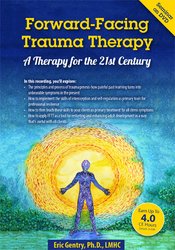

What if there was a simple, efficient, and effective way to treat clients’ traumatic stress that didn’t involve them revisiting the painful memories of the past? Forward-Facing Trauma Therapy (FFTT) is a method of trauma treatment that combines components of CBT and brain science to teach clients a disciplined practice of self-regulation that enables them to navigate the high-demand situations of their lives with a symptom-free body, maximal cognitive and motor functioning, and intentional instead of reactive behavior. In this workshop, you’ll explore:
| File type | File name | Number of pages | |
|---|---|---|---|
| Handouts (4.46 MB) | 10 Pages | Available after Purchase |

J. Eric Gentry, PhD, LMHC, DAAETS, FAAETS, CCTP, is an internationally recognized leader in the study and treatment of traumatic stress and compassion fatigue. His PhD is from Florida State University where he studied with Professor Charles Figley – a pioneer of these two fields. In 1997, he co-developed the Accelerated Recovery Program (ARP) for compassion fatigue – the world’s only evidence-based treatment protocol for compassion fatigue. In 1998, he introduced the Certified Compassion Fatigue Specialist Training and Compassion Fatigue Prevention & Resiliency Training. These two trainings have demonstrated treatment effectiveness for the symptoms of compassion fatigue, and he published these effects in several journals. He has trained over 100,000 health professionals over the past 20 years.
He has written numerous chapters, papers, and peer-reviewed journal articles in the areas of traumatic stress and compassion fatigue. Dr. Gentry is a Master Traumatologist with over 35 years of clinical experience with trauma, Complex PTSD, personality disorders, and dissociation.
He is the president and CEO of The Forward Facing® Institute and owner of Compassion Unlimited – a private psychotherapy, training, and consulting practice – in Phoenix, AZ.
Please wait ...